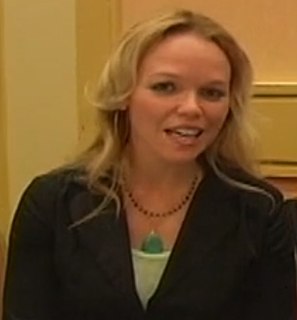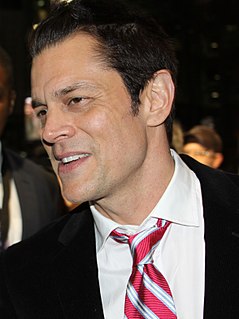A Quote by Debbie Rowe
Michael had a very low pain tolerance, and his fear of pain was incredible. And I think that doctors took advantage of him that way.
Related Quotes
To remain stable is to refrain from trying to separate yourself from a pain because you know that you cannot. Running away from fear is fear, fighting pain is pain, trying to be brave is being scared. If the mind is in pain, the mind is pain. The thinker has no other form than his thought. There is no escape.
Pain held no terror for him. Pain was, if not friend, then family, something he had grown up with in his crèche, learning to respect but never yield to. Pain was simply a message, telling him which limbs he could still use to slaughter his enemies, how far he could still run, and what his chances were in the next battle.
She expected the pain, when it came. But she gasped at its sharpness; it was not like any pain she had felt before. He kissed her and slowed and would have stopped. But she laughed, and said that this one time she would consent to hurt, and bleed, at his touch. He smiled into her neck and kissed her again and she moved with him through the pain. The pain became a warmth that grew. Grew, and stopped her breath. And took her breath and her pain and her mind away from her body, so that there was nothing but her body and his body and the light and fire they made together.
Have you ever experienced a pain so sharp in your heart that it's all you can do to take a breath? It's a pain you wouldn't wish on your worst enemy; you wouldn't want to pass it on to anyone else for fear he or she might not be able to bear it. It's the pain of being betrayed by a person with whom you've fallen in love. It's not as serious as death, but it feels a whole lot like it, and as I've come to learn, pain is pain any way you slice it.
Pain in life is inevitable but suffering is not. Pain is what the world does to you, suffering is what you do to yourself [by the way you think about the 'pain' you receive]. Pain is inevitable, suffering is optional. [You can always be grateful that the pain is not worse in quality, quantity, frequency, duration, etc]
Westley closed his eyes. There was pain coming and he had to be ready for it. He had to prepare his brain, he had to get his mind controlled and safe from their efforts, so that they could not break him. He would not let them break him. He would hold together against anything and all. If only they gave him sufficient time to make ready, he knew he could defeat pain. It turned out they gave him sufficient time (it was months before the Machine was ready). But they broke him anyway.
This was why I was here. This was why I would take whatever reception waited for me when I got back. Because, underneath all the anger and the sarcasm, Jacob was in pain. Right now, it was very clear in his eyes. I didn't know how to help him, but I knew I had to try. It was more than that I owed him. It was because his pain hurt me, too. Jacob had become a part of me, and there was no changing that now.
Pain! Deep, tearing, throbbing, needle-sharp, hammer-blunt pain – ripping through his body and through his mind, twisting deep in his guts and slicing at his skin with razors and broken glass. Oskan wanted to scream, but his vocal cords had burned away. He was desperate for water and he could hear it dripping all around him, but his charred tongue found nothing in his mouth but blisters and scorched flesh. For hours he lay on the ropes of the low bed, unable to move, the pressure of the hemp on his destroyed skin sending new agonies deep into his body.
The only way to be a champion is by going through these forced reps and the torture and pain. That's way I call it the torture routine. Because it's like forced torture. Torturing my body. What helps me is to think of this pain as pleasure. Pain makes me grow. Growing is what I want. Therefore, for me pain is pleasure. And so when I am experiencing pain I'm in heaven. It's great. People suggest this is masochistic. But they're wrong. I like pain for a particular reason. I don't like needle's stuck in my arm. But I do like the pain that is necessary to be a champion.



































